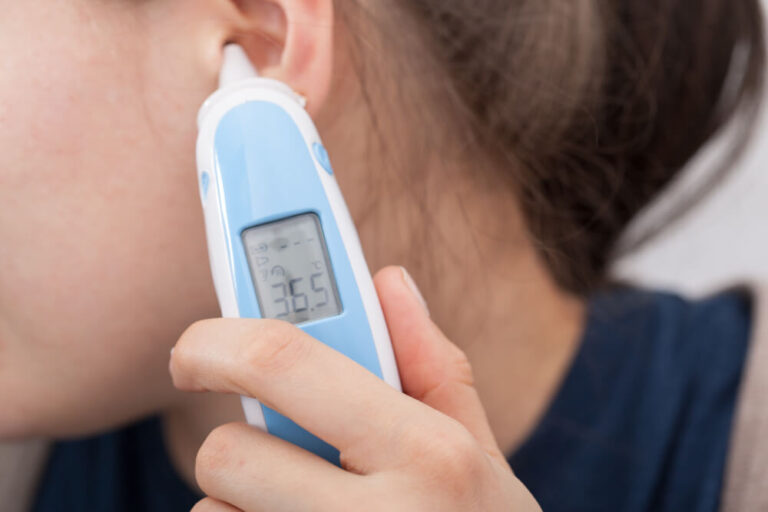Deep dive into how sleep, exercise, toxin exposure, diet, and other lifestyle habits affect egg development and fertility outcomes.
The lifestyle choices you make play a significant role in the health and development of your eggs, and therefore, your fertility. Egg quality is a crucial factor in conception, and while egg quantity naturally declines with age, there are many ways lifestyle factors can influence the development of healthy eggs. Here’s an overview of how various lifestyle factors impact egg quality and overall fertility:
1. Diet and Nutrition
- Nutrient-Rich Diet: A balanced, nutrient-dense diet is essential for supporting optimal egg development. Key nutrients involved in egg health include:
- Antioxidants: These help protect eggs from oxidative stress and DNA damage. Fruits and vegetables rich in vitamins C and E, as well as green leafy vegetables, can improve egg quality by neutralizing free radicals.
- Healthy Fats: Omega-3 fatty acids, found in fatty fish, flaxseeds, and walnuts, are vital for hormone production and reducing inflammation. Healthy fats also improve the fluidity of cell membranes, which is essential for egg function and fertilization.
- B Vitamins: B6 and B12 are important for hormone regulation and the production of red blood cells. A deficiency in B vitamins can disrupt ovulation and egg development.
- Zinc: This mineral plays a role in hormone synthesis and egg maturation. It’s found in foods like shellfish, beans, pumpkin seeds, and red meat.
- Folic Acid: This B vitamin supports proper cell division and genetic integrity of eggs, reducing the risk of chromosomal abnormalities. It’s found in leafy greens, legumes, and fortified cereals.
- Protein: As discussed earlier, adequate protein intake provides the amino acids needed for hormone production and cellular repair, both of which are crucial for the maturation of healthy eggs.
- Avoiding Excessive Sugar and Processed Foods: High-sugar diets and processed foods can contribute to insulin resistance and inflammation, both of which can negatively affect ovarian function and egg quality. Balanced blood sugar levels are crucial for maintaining hormone balance and supporting regular ovulation.
2. Exercise
- Regular Physical Activity: Moderate exercise is beneficial for improving blood circulation to the ovaries and uterus, which is necessary for healthy egg development. Exercise also supports overall hormonal balance and reduces the risk of obesity, which can negatively affect fertility.
- Impact of Excessive Exercise: While regular exercise is beneficial, over-exercising (especially extreme endurance training) can lead to a drop in estrogen levels, irregular cycles, and anovulation (lack of ovulation). It’s important to maintain a balanced exercise routine that supports overall health without compromising reproductive function.
- Yoga and Stress Reduction: Practices like yoga and pilates can help reduce stress, improve flexibility, and enhance pelvic circulation, which can promote a healthy reproductive system. Certain poses, as well as mindfulness and deep breathing, may reduce the physical effects of stress on the body and improve fertility.
3. Weight Management
- Healthy Weight: Maintaining a healthy weight is one of the most important factors for fertility. Obesity and underweight conditions can both disrupt hormonal balance, affect ovulation, and lead to poorer egg quality. Fat cells produce estrogen, so both too much and too little body fat can cause irregularities in reproductive hormones.
- Women who are overweight or obese may experience insulin resistance, which can affect ovulation and egg development, particularly in conditions like PCOS (polycystic ovary syndrome).
- Women who are underweight may not have enough fat stores to support the production of estrogen, potentially leading to anovulation (lack of ovulation) and poor egg development.
- BMI (Body Mass Index): A BMI in the normal range (typically between 18.5 and 24.9) is associated with optimal fertility. Both extremes (underweight and overweight) can compromise reproductive health and egg quality.
4. Sleep
- Quality Sleep: Adequate sleep is crucial for hormonal regulation, as most reproductive hormones (like FSH, LH, and estrogen) are produced during sleep. Poor sleep can interfere with hormonal balance and disrupt the circadian rhythms, which can negatively impact ovarian function and egg quality.
- Sleep Deprivation and Stress: Chronic lack of sleep can increase stress hormones (like cortisol), which in turn can affect reproductive hormones and egg development. Ensuring 7–9 hours of quality sleep per night is essential for hormonal health and fertility.
5. Stress Management
- Chronic Stress: Long-term stress can significantly impact fertility by increasing levels of cortisol, a hormone that can interfere with the balance of reproductive hormones like estrogen and progesterone. Stress also has a negative effect on blood flow to the ovaries and uterus, reducing the supply of oxygen and nutrients required for egg development.
- Reducing Stress: Mindfulness techniques, meditation, and relaxation practices (such as deep breathing, progressive muscle relaxation, or acupuncture) can help lower cortisol levels and support overall hormonal balance. Reducing stress can improve the environment for egg maturation and ovulation.
6. Toxin Exposure
- Environmental Toxins: Exposure to chemicals and environmental toxins, including endocrine disruptors (such as bisphenol A (BPA), pesticides, and certain plastics), can have a significant impact on egg quality and ovarian function. These toxins can interfere with hormone signaling and disrupt the delicate hormonal balance required for healthy egg development.
- Minimizing Toxin Exposure:
- Avoid plastic containers that may contain BPA.
- Use natural cleaning products and personal care items that are free from harmful chemicals.
- Eat organic when possible to reduce exposure to pesticides and herbicides.
- Minimize exposure to heavy metals, such as lead and mercury, which can also impair fertility.
- Caffeine and Alcohol: Excessive consumption of caffeine and alcohol can negatively impact egg quality. High caffeine intake (more than 2–3 cups per day) has been linked to lower ovarian reserve and reduced fertility, while excessive alcohol can disrupt hormonal balance and affect the quality of eggs.
7. Smoking
- Smoking and Egg Quality: Smoking is one of the most significant lifestyle factors that negatively impacts egg quality. It accelerates ovarian aging, reduces ovarian reserve, and increases the risk of chromosomal abnormalities in eggs, which can affect fertility and increase the risk of miscarriage. Smoking can also lead to poor blood circulation, which deprives the ovaries and eggs of the necessary oxygen and nutrients.
- Second-Hand Smoke: Exposure to second-hand smoke also has negative effects on egg quality and overall fertility. Quitting smoking can significantly improve both egg quality and the chances of conception.
8. Fertility Supplements
- Certain supplements can support egg health and improve the chances of healthy egg development. Key supplements to consider (after consulting with a healthcare provider) include:
- Coenzyme Q10 (CoQ10): This antioxidant is crucial for cellular energy production and may help improve egg quality, particularly in women over 35, by protecting eggs from oxidative stress.
- Vitamin D: Adequate vitamin D levels are linked to better egg quality and improved fertility.
- Folic Acid: Folic acid is essential for the healthy development of eggs and the prevention of chromosomal abnormalities.
- Omega-3 Fatty Acids: Omega-3s help reduce inflammation and support hormone balance.
9. Avoiding Hormonal Birth Control Long-Term
- Long-Term Use of Birth Control: While birth control is effective at preventing pregnancy, using hormonal birth control for extended periods (especially for more than 5 years) may impact ovarian function and egg quality. Some studies suggest that prolonged use of hormonal contraceptives can delay the return of regular ovulation and may affect ovarian reserve in some women.
10. Regular Medical Check-ups
- Health Monitoring: Regular check-ups with a healthcare provider are important for monitoring overall health and reproductive function. Conditions like PCOS, endometriosis, or thyroid imbalances can affect egg quality and fertility, so early detection and management of these conditions can improve reproductive outcomes.
Conclusion
Your lifestyle choices have a profound effect on egg quality and overall fertility. A healthy diet, regular exercise, maintaining a healthy weight, stress management, and avoiding toxins all contribute to the health of your eggs. Additionally, getting enough sleep and reducing exposure to environmental factors like smoking and alcohol can help optimize egg development and improve your chances of conception. While some factors like age and genetics are beyond control, adopting a healthy lifestyle can significantly improve the quality of your eggs and increase your fertility potential.






Comments
adamgordon
Wow, cool post, thanks for sharing.
miaqueen
Thanks for sharing this information is useful for us.